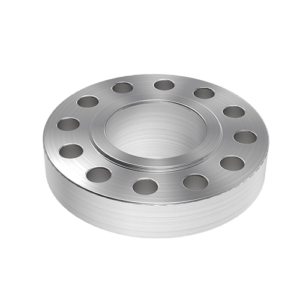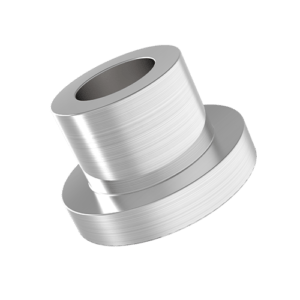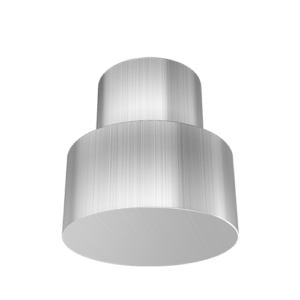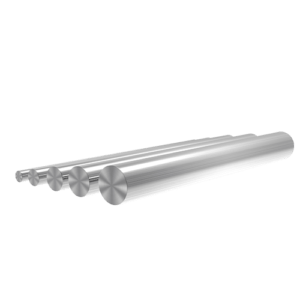Welcome to My Blog!
Before we dive into the content, I’d love for you to join me on my social media platforms where I share more insights, engage with the community, and post updates. Here’s how you can connect with me:
Facebook:https://www.facebook.com/profile.php?id=100090063158454
Now, let’s get started on our journey together. I hope you find the content here insightful, engaging, and valuable.
Table of Contents
Introduction

When it comes to manufacturing, choosing the right materials is crucial for ensuring durability, performance, and cost-effectiveness. Among the various materials used in production, 403 stainless steel has emerged as a preferred choice for many industries. Known for its unique properties, this alloy is commonly used in a range of applications, from automotive to industrial machinery. In this article, we will explore the top five benefits and why it’s an excellent choice for manufacturers looking for strength, corrosion resistance, and versatility.
What is 403 Stainless Steel?

403 stainless steel is a type of martensitic stainless steel alloy primarily composed of iron, chromium, and nickel. It is a member of the 400 series of stainless steels, which are known for their strong resistance to corrosion, wear, and oxidation. With a higher percentage of chromium compared to other alloys, provides improved mechanical properties, making it suitable for demanding environments.
Unlike its austenitic counterparts, offers enhanced hardness and the ability to be heat treated, making it ideal for use in parts that require both strength and toughness. Additionally, it exhibits good resistance to oxidation and moderate corrosion resistance, which makes it perfect for manufacturing components in industries where exposure to extreme conditions is frequent.
Key Benefits
Durability and Strength
One of the primary reasons manufacturers opt is its durability. This material offers exceptional strength, making it ideal for applications that require a tough, wear-resistant surface. Whether used in industrial machinery, automotive parts, or aerospace components, 403 stainless steel can withstand considerable stress and mechanical wear without compromising its structural integrity. This high strength ensures that products made from 403 stainless steel last longer, reducing the need for frequent replacements.
Corrosion Resistance
Another significant advantage of it is its resistance to corrosion, which is vital in many manufacturing environments. While it may not offer the same level of resistance as austenitic stainless steels (such as 304 or 316),it still provides good protection against rust and oxidation in mild to moderately corrosive environments. This makes it an ideal material for components that will be exposed to moisture, heat, or chemical processes.
Excellent Workability and Machinability
Manufacturers often choose it due to its excellent machinability. The material can be easily processed and fabricated into various shapes, making it highly versatile in manufacturing. Whether it’s being used to produce complex parts or simple components, it can be cut, welded, and formed with relative ease. Its ability to maintain strength during the machining process further enhances its appeal for manufacturers who need to create precision parts with minimal effort.
Cost-Effectiveness
While 403 stainless steel may not be the cheapest material on the market, it strikes an excellent balance between cost and performance. Compared to more expensive stainless steels, it offers a lower cost while still providing exceptional mechanical properties. Manufacturers seeking a material that offers both strength and corrosion resistance without exceeding their budget often turn to it as a reliable and cost-effective solution.
Heat Resistance
403 stainless steel is also known for its ability to withstand high temperatures, making it suitable for applications in environments with elevated heat. It maintains its strength and performance under extreme conditions, which is essential for components such as exhaust systems, turbine parts, and engine components. This heat resistance ensures that products made from 403 stainless steel can operate effectively without degrading over time, even in demanding environments.
Applications

Due to its unique properties, it is used across various industries, including:
- Aerospace: In the aerospace sector, it is used for parts that require high strength and heat resistance, such as turbine blades and exhaust components.
- Automotive: Automotive manufacturers use it for engine components and exhaust systems that need durability and corrosion resistance.
- Industrial machinery: In industrial machinery, it is used for components that are subjected to heavy wear, such as valves, pumps, and shafts.
These examples highlight the versatility and its ability to meet the demands of various applications across different sectors.
Key Properties
| Property | Description |
|---|---|
| Chemical Composition | Primarily iron, chromium, and nickel |
| Corrosion Resistance | Moderate corrosion resistance, ideal for mild to moderate environments |
| Strength | High tensile strength, ideal for parts exposed to mechanical stress |
| Heat Resistance | Excellent heat resistance, suitable for high-temperature environments |
| Machinability | Good machinability, easy to work with and fabricate |
Conclusion

In conclusion, 403 stainless steel offers a range of benefits that make it an excellent choice for manufacturers across various industries. Its durability, corrosion resistance, machinability, cost-effectiveness, and heat resistance make it a versatile and reliable material for producing high-quality components. Whether you’re in the automotive, aerospace, or industrial machinery sectors, 403 stainless steel provides the strength and performance needed to meet the demands of today’s manufacturing challenges.
FAQ
What is the primary use of 403 stainless steel?
403 stainless steel is primarily used in applications that require high strength, corrosion resistance, and heat resistance, such as automotive parts, aerospace components, and industrial machinery.
How does 403 stainless steel compare to other stainless steels?
While 403 stainless steel is not as resistant to corrosion as austenitic stainless steels, it offers excellent strength and heat resistance, making it ideal for parts exposed to high stress and temperature conditions.
Is 403 stainless steel easy to machine?
Yes, 403 stainless steel offers good machinability, making it easy to work with and fabricate into various shapes for different manufacturing applications.
Can 403 stainless steel be welded?
Yes, 403 stainless steel can be welded, although special care must be taken to avoid cracking in the heat-affected zones. It is often welded using gas tungsten arc welding (GTAW) or other appropriate welding techniques.
Is 403 stainless steel a cost-effective material?
Yes, 403 stainless steel is considered a cost-effective material, offering a good balance between performance and cost, especially when compared to more expensive stainless steel alloys.
